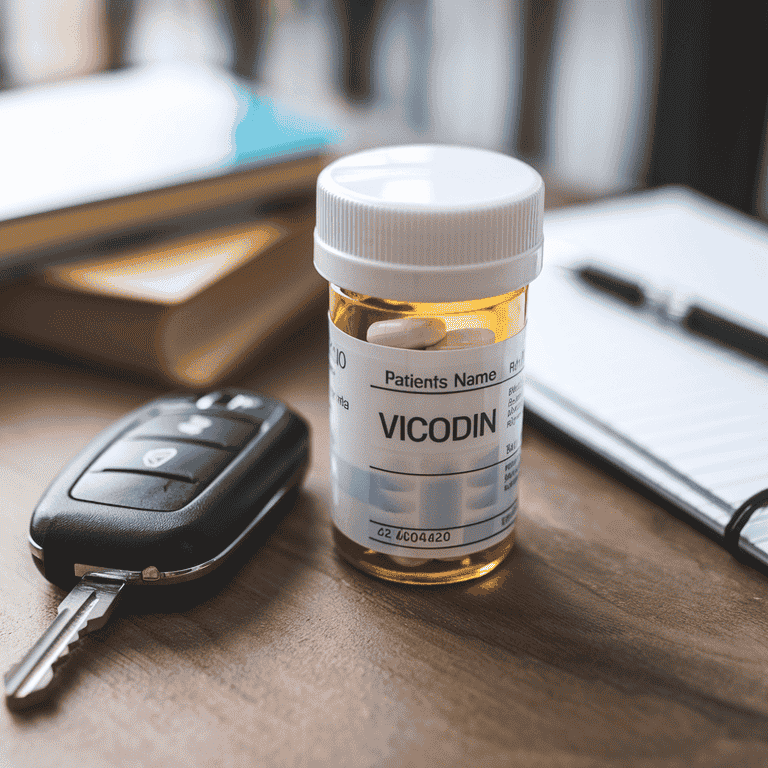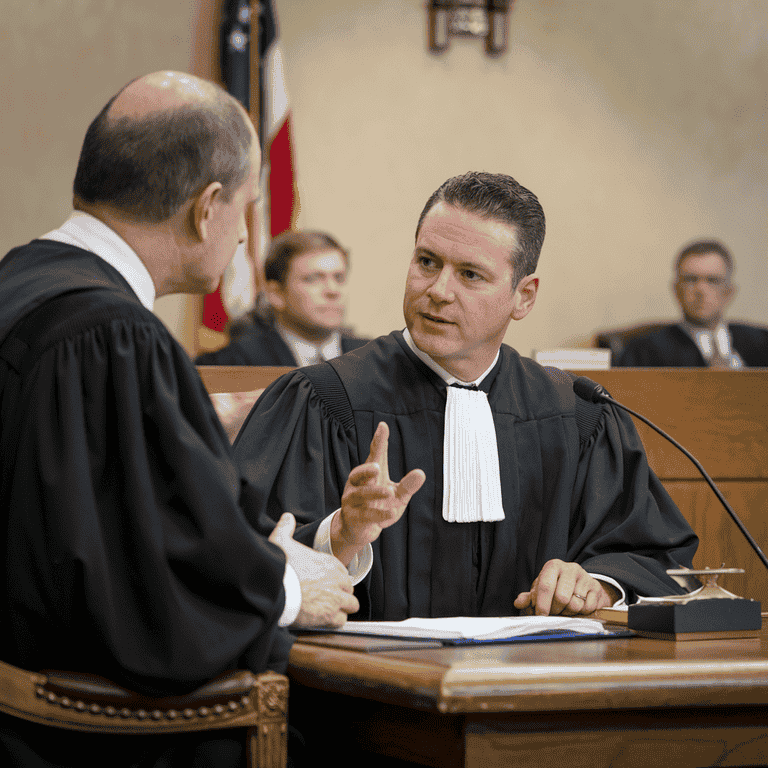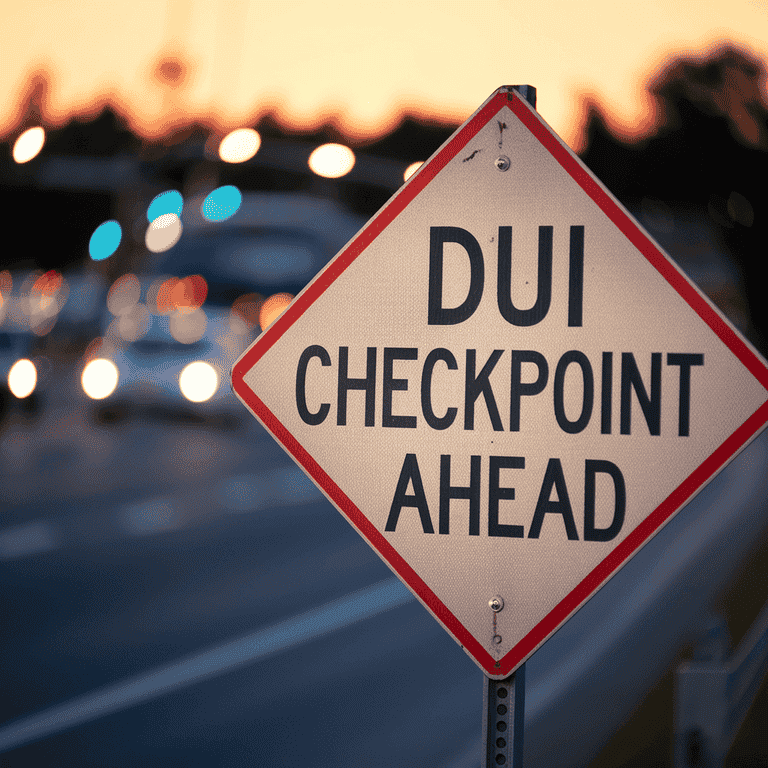Overview of Vicodin and Its Effects
Definition of Vicodin
Vicodin is a prescription medication that combines two main ingredients: hydrocodone and acetaminophen. Hydrocodone is an opioid pain reliever, while acetaminophen is a non-opioid pain reliever. This combination makes Vicodin effective for managing moderate to severe pain, often prescribed after surgeries or for chronic pain conditions.
Common Uses of Vicodin
Vicodin is typically prescribed for:
- Post-surgical pain relief
- Injury-related pain management
- Chronic pain conditions, such as arthritis
- Other medical conditions requiring pain control
How Vicodin Affects the Body and Mind
When taken, Vicodin can produce feelings of euphoria and relaxation due to its opioid component. However, it also has side effects that can impair cognitive and motor functions. These effects include:
- Drowsiness
- Dizziness
- Impaired coordination
- Difficulty concentrating
Given these potential impairments, it’s important to understand how Vicodin affects an individual’s ability to operate a vehicle safely.
Understanding DUI Laws in Nevada
Definition of DUI Under Nevada Law
Driving Under the Influence (DUI) in Nevada refers to operating a vehicle while impaired by alcohol or drugs. This includes prescription medications like Vicodin.
Legal Blood Alcohol Concentration (BAC) Limits
In Nevada, the legal limit for blood alcohol concentration (BAC) is:
- 0.08% for drivers over 21
- 0.04% for commercial drivers
- Zero tolerance for drivers under 21
It’s important to note that even if your BAC is below these limits, you can still be charged with a DUI if impaired by drugs, including Vicodin.
The Impact of Prescription Drugs on DUI Laws
Nevada law recognizes that prescription medications can impair driving ability. If a driver is found to be under the influence of drugs like Vicodin, they may face the same legal consequences as those driving under the influence of alcohol. This means that:
- Driving under the influence of prescription medications is illegal.
- You can be charged with a DUI if impairment is evident, regardless of BAC.
Understanding these laws can help individuals make informed choices regarding medication use and driving.

Vicodin and Impairment
How Vicodin Impairs Motor Skills
Vicodin can significantly impact motor skills, affecting a person’s ability to drive safely. The impairment may show in several ways:
- Reduced reaction time
- Decreased hand-eye coordination
- Impaired judgment
Signs of Impairment from Vicodin
Recognizing the signs of impairment is important, especially if you’re thinking about driving after taking Vicodin. Some common indicators include:
- Slurred speech
- Difficulty focusing
- Unsteady movements
- Unusual behavior or mood swings
If you experience any of these symptoms after taking Vicodin, it’s essential to avoid driving.
Differences Between Alcohol and Drug Impairment
While both alcohol and drugs like Vicodin impair driving abilities, there are differences in how they affect individuals. For instance:
- Alcohol often leads to aggressive behavior, while Vicodin may cause drowsiness or confusion.
- The effects of alcohol can be immediate, whereas drug effects can vary based on metabolism and dosage.
Understanding these differences is vital for recognizing when it is unsafe to drive.
Legal Consequences of a Vicodin DUI
Potential Penalties for a Vicodin DUI
Getting a DUI charge related to Vicodin can lead to serious consequences. The penalties vary based on several factors, including whether it’s your first offense and whether there were any aggravating circumstances, such as causing injury or property damage. Here are some potential penalties:
First Offense:
- Fines ranging from $400 to $1,000
- Up to 6 months in jail
- License suspension for 90 days to 1 year
Second Offense:
- Fines ranging from $750 to $1,500
- Jail time from 1 month to 1 year
- License suspension for 1 year to 3 years
Third Offense:
- Fines ranging from $2,000 to $5,000
- 1 to 6 years in prison
- License suspension for 3 years to 5 years
Grasping these penalties highlights the importance of making responsible choices when it comes to driving after taking Vicodin.
License Suspension and Revocation
A DUI conviction can lead to license suspension or revocation. This means you will not be legally allowed to drive for a certain period. Here’s how it typically works:
- Temporary License: After a DUI arrest, you may be issued a temporary license for 7 days. After that, you’ll need to follow the legal process to reinstate your driving privileges.
- Hardship License: In some cases, you may apply for a hardship license, allowing you to drive to work or school under strict conditions.
The impact of losing your driving privileges can be significant, affecting your daily life and responsibilities.
Fines and Jail Time
The financial and emotional costs of a Vicodin DUI can be staggering. In addition to fines, you may face jail time. Here are some factors that could influence these outcomes:
- Severity of Impairment: If evidence shows severe impairment, penalties may be harsher.
- Previous Offenses: Repeat offenders face significantly stiffer penalties.
- Injury or Damage: Causing harm to others or property will lead to increased fines and jail time.
It’s vital to grasp these potential consequences to better understand the gravity of a Vicodin DUI charge.

Defending Against a Vicodin DUI Charge
Importance of Legal Representation
Navigating a Vicodin DUI charge can be complicated. Having a knowledgeable attorney can make a significant difference in the outcome of your case. A qualified lawyer can:
- Analyze the details of your arrest
- Identify weaknesses in the prosecution’s case
- Negotiate plea deals or reduced charges
Finding an attorney who understands DUI laws in Nevada is essential for effective defense.
Common Defenses for Vicodin DUI Charges
There are several defenses that can be used against a Vicodin DUI charge. Some common strategies include:
- Challenging the Traffic Stop: If the initial stop was unlawful, evidence gathered during the stop may be inadmissible.
- Questioning Field Sobriety Tests: These tests can be subjective and influenced by many factors, such as medical conditions.
- Proving Lack of Impairment: If you can show that Vicodin did not impair your ability to drive, this can be a strong defense.
Each case is unique, so it’s important to discuss specific defenses with your attorney.
Role of Expert Witnesses in Defense
In some situations, your defense may benefit from expert testimony. Expert witnesses can provide insights that help establish your case. For example:
- Medical Experts: They can explain how Vicodin affects different individuals based on health conditions.
- Toxicology Experts: These specialists can analyze the presence and impact of Vicodin in your system.
Using expert witnesses can strengthen your defense and provide a clearer understanding of the circumstances surrounding your case.
Navigating the Legal Process After a Vicodin DUI Arrest
Steps to Take Immediately After an Arrest
If you find yourself arrested for a Vicodin DUI, taking the right steps is essential. Here’s what you should do:
- Stay Calm: Cooperate with law enforcement but avoid admitting guilt.
- Request an Attorney: You have the right to legal representation. Make this request as soon as possible.
- Document Everything: Take notes about the circumstances of your arrest while they are fresh in your mind.
These steps can help protect your rights and provide a clearer picture of your situation.
Understanding Your Rights During a DUI Stop
Knowing your rights can empower you during a DUI stop. Here are some key rights you should remember:
- Right to Remain Silent: You do not have to answer questions that may incriminate you.
- Right to an Attorney: You can request an attorney at any point during the process.
- Right to Refuse Tests: You can refuse field sobriety tests, but be aware that refusing a breathalyzer may result in automatic penalties.
Understanding these rights can help you respond appropriately during a DUI stop.
Importance of Gathering Evidence
Building a solid defense starts with gathering evidence. Here are some types of evidence you might think about collecting:
- Witness Statements: Gather contact information from anyone who witnessed the arrest or can vouch for your sobriety.
- Medical Records: If you have a prescription for Vicodin, having documentation can be helpful.
- Personal Notes: Jot down everything you remember about the events leading up to your arrest.
Collecting evidence promptly can play a critical role in your defense.
Impact on Insurance and Employment
Effects on Auto Insurance Rates
A Vicodin DUI conviction can significantly affect your auto insurance premiums. Insurers view a DUI as a serious risk factor. Here’s how it typically influences rates:
- Increased Premiums: After a DUI, you can expect your insurance rates to rise, sometimes dramatically.
- Policy Non-Renewal: Some companies may choose not to renew your policy altogether, forcing you to seek coverage elsewhere.
- SR-22 Requirement: In many cases, you might need to file an SR-22 form, which is a certificate of financial responsibility. This can also increase your rates.
Understanding these potential changes can help you prepare for the financial repercussions of a DUI charge.
Employment Consequences
A DUI conviction can also impact your job and future employment opportunities. Many employers conduct background checks, and a DUI can raise concerns. Here are some potential effects:
- Job Loss: If your job requires driving, a DUI could lead to termination.
- Future Job Opportunities: Many employers may be hesitant to hire someone with a DUI on their record.
- Licensing Issues: Certain professions, like healthcare and education, may revoke your license due to a DUI conviction.
Being aware of these impacts can help you make informed decisions moving forward.

Long-Term Consequences of a Vicodin DUI
Criminal Record Implications
A DUI conviction typically results in a criminal record. This can have lasting effects on various aspects of your life:
- Background Checks: Many employers and landlords conduct background checks, and a DUI can hinder your chances.
- Travel Restrictions: Some countries may deny entry to individuals with a DUI conviction.
- Loss of Rights: In certain states, a DUI can lead to losing your right to vote or possess firearms.
Recognizing these potential long-term consequences is essential for making informed choices about your future.
Potential for Recidivism
Facing a Vicodin DUI can increase the likelihood of future offenses. Some factors that contribute to this risk include:
- Substance Use Disorders: Ongoing issues with addiction can lead to repeated offenses if not addressed.
- Lack of Support: A weak support system can hinder recovery efforts, increasing the risk of reoffending.
- Stress and Coping Mechanisms: Some individuals may return to substance use as a way to cope with the stress of a DUI conviction.
Understanding the factors contributing to repeat offenses can motivate individuals to seek help and support.

Breaking It Down for You
Navigating a Vicodin DUI charge can be daunting. The legal consequences, impacts on insurance, and long-term implications are significant. However, it’s essential to remember that there is hope. Seeking legal representation and treatment can lead to positive outcomes.
If you or someone you know is facing a Vicodin DUI charge, take the necessary steps to protect your rights and well-being. Knowledge and action are your best allies in this challenging situation.
Being informed is the first step toward making better choices for your future. Whether it’s seeking legal counsel, exploring treatment options, or understanding the potential consequences, taking action is key to moving forward.

Frequently Asked Questions
What should I do immediately after being charged with a Vicodin DUI?
If you are charged with a Vicodin DUI, it’s crucial to remain calm. First, you should consider consulting a DUI attorney who specializes in such cases. They can provide guidance on your next steps, including how to navigate the legal process, potential defenses, and your rights.
How long does a Vicodin DUI stay on my record?
In Nevada, a DUI conviction can remain on your criminal record for up to 7 years. However, the specific time frame may vary depending on various factors, such as additional offenses or expungement options. Consulting a legal professional can help clarify your situation.
Can I fight a Vicodin DUI charge?
Yes, you can contest a Vicodin DUI charge. Potential defenses may include challenging the validity of the traffic stop, questioning the accuracy of the drug test, or presenting evidence that proves you were not impaired. A qualified attorney can help you assess your options.
What are the penalties for a Vicodin DUI?
Penalties for a Vicodin DUI can include fines, license suspension, mandatory drug counseling, community service, and jail time. The severity of the penalties often depends on whether it’s your first offense or if you have prior DUI convictions.
Will I have to attend drug counseling if convicted?
Yes, attending drug counseling is often a requirement for individuals convicted of a Vicodin DUI. This is intended to address any underlying substance use issues and reduce the risk of reoffending.
How does a Vicodin DUI affect my ability to obtain a professional license?
A Vicodin DUI can complicate your ability to obtain or maintain certain professional licenses. Many regulatory bodies conduct background checks, and a DUI conviction may raise concerns about your fitness for the profession.
Can I still travel internationally with a DUI on my record?
While having a DUI on your record does not automatically prevent you from traveling internationally, some countries may deny entry based on your criminal history. It’s essential to research the entry requirements of the country you plan to visit before traveling.
What if I was not driving when the police found me?
Even if you were not driving at the time, you could still be charged with a DUI if the authorities determine that you were in control of the vehicle while impaired. Factors like being in the driver’s seat or having the keys in the ignition may be considered.
Is it possible to expunge a Vicodin DUI from my record?
In Nevada, expunging a DUI conviction from your record is generally not possible. However, certain options, like sealing records, may be available after a specific period and under specific conditions. Consulting with a legal expert can help you understand your options.
How can I prevent a Vicodin DUI charge in the future?
To prevent a Vicodin DUI charge, it’s essential to be mindful of your medication usage and its effects on your ability to drive. If you’re unsure about the impact of a prescribed medication like Vicodin, consult with your healthcare provider. Additionally, consider alternatives to driving, such as ridesharing or public transportation, when you have taken medication that could impair your ability to drive safely.

Glossary
DUI (Driving Under the Influence): A criminal charge for operating a vehicle while impaired by drugs or alcohol, including prescription medications like Vicodin.
Vicodin: A prescription pain medication that contains a combination of hydrocodone and acetaminophen, often prescribed for moderate to severe pain relief.
Impairment: A state where an individual’s physical or mental abilities are diminished, affecting their capacity to operate a vehicle safely.
Substance Use Disorder: A medical condition characterized by an individual’s inability to stop using a substance despite negative consequences, which may include prescription drugs like Vicodin.
Field Sobriety Test: A series of roadside tests administered by law enforcement to assess a driver’s physical and cognitive abilities, often used to determine impairment.
Blood Test: A medical test that measures the concentration of drugs or alcohol in an individual’s bloodstream, often used as evidence in DUI cases.
License Suspension: A legal penalty that temporarily revokes an individual’s driving privileges for a specified period due to a DUI conviction or other offenses.
Penalties: Consequences imposed by law for violating regulations, which can include fines, jail time, community service, or mandatory counseling.
Counseling: Professional guidance and support for individuals dealing with substance use issues, often required as part of the rehabilitation process after a DUI conviction.
Expungement: The legal process of removing a criminal conviction from an individual’s record, making it as if the offense never occurred.
Probation: A court-imposed period during which an individual must comply with certain conditions instead of serving time in jail.
Traffic Stop: An event where law enforcement officers pull over a vehicle to investigate a potential traffic violation or criminal activity.
Legal Representation: The act of being represented by an attorney or legal professional in court or legal matters.
Control of the Vehicle: A legal concept where a person is considered to have control over a vehicle, even if they are not actively driving, which can impact DUI charges.
Community Service: Unpaid work for the benefit of the community, often mandated as part of a DUI sentence or probation.
Severity of Charges: The classification of a crime based on factors like the nature of the offense, prior convictions, and the potential harm caused, which can influence penalties.
Background Check: A process where an individual’s criminal history is reviewed, often conducted by employers or licensing agencies to assess fitness for a position or license.

Additional Resources for You
For those navigating the complexities of DUI charges in Las Vegas, our lead attorney, Molly Rosenblum, Esq., offers a wealth of resources to assist you in your time of need. Ms. Rosenblum’s dedication to providing comprehensive legal guidance is evident through her extensive collection of informative materials. Explore the following resources to gain insights and support for your specific situation:
Las Vegas DUI Lawyer: Specialized legal support for DUI cases in Las Vegas. Visit here
DUI Consequences: Understand the potential repercussions of a DUI charge. Learn more
DUI License Suspension: Information on how a DUI can affect your driving privileges. Read further
DUI Plea Bargain: Explore options for plea bargains in DUI cases. Discover details
Drug DUI: Guidance on DUI charges involving drugs. Find out more
DUI Defense Strategies: Effective strategies to defend against DUI charges. Review strategies
First Time DUI: Important information for first-time DUI offenders. Get informed
Second Time DUI: Insights and advice for facing a second DUI charge. Understand the implications
Marijuana DUI: Specifics on DUI charges related to marijuana use. Learn the specifics
Nevada DUI Law: Overview of DUI laws specific to Nevada. Read the laws
Las Vegas Legal Alcohol Limit: Information on the legal alcohol limit in Las Vegas. Know the limit
Whether you’re dealing with a DUI charge for the first time or facing subsequent charges, these resources provide valuable information and guidance to help you understand the potential consequences and navigate your legal journey.

Offsite Resources for You
Here are some additional resources that you might find helpful:
National Highway Traffic Safety Administration (NHTSA): NHTSA provides a wealth of information about traffic safety and regulations, including those related to impaired driving.
Centers for Disease Control and Prevention (CDC) – Impaired Driving: This page offers comprehensive information on impaired driving, including statistics, prevention strategies, and state-specific data.
Substance Abuse and Mental Health Services Administration (SAMHSA): SAMHSA provides information on substance abuse treatment and prevention, which can be particularly helpful for those dealing with addiction issues related to DUI charges.
American Automobile Association (AAA) – DUI Laws by State: This resource gives an overview of DUI laws by state, which can help you understand how regulations may vary.
Mothers Against Drunk Driving (MADD): MADD offers resources for victims of drunk driving and advocates for stronger laws and enforcement.
National Institute on Drug Abuse (NIDA): NIDA provides information on the impacts of drug abuse and addiction, including effects on driving.
Remember, these resources should not be used as a substitute for legal advice. Always consult with an attorney about your specific situation.

A Special Message from Our Lead Attorney

Molly Rosenblum
Dear Reader,
Firstly, thank you for taking the time to read through these resources. My aim in creating them was to provide you with some initial guidance and understanding during what I know can be challenging.
I understand that each situation is unique and that these resources, while informative, may not fully address your concerns and questions. Therefore, please contact me directly. I’m here to listen, understand your specific circumstances, and provide you with the professional advice you need.
Please call me at (702) 433-2889 to schedule a free consultation. This will be a confidential conversation where we can discuss your situation in more detail, and I can provide more specific guidance on the best course of action for your case.
Remember, you don’t have to face this alone. My team and I are ready to provide the support you need.
Thank you again for your time, and I look forward to hearing from you soon.
Best,
Molly Rosenblum, Esq.




